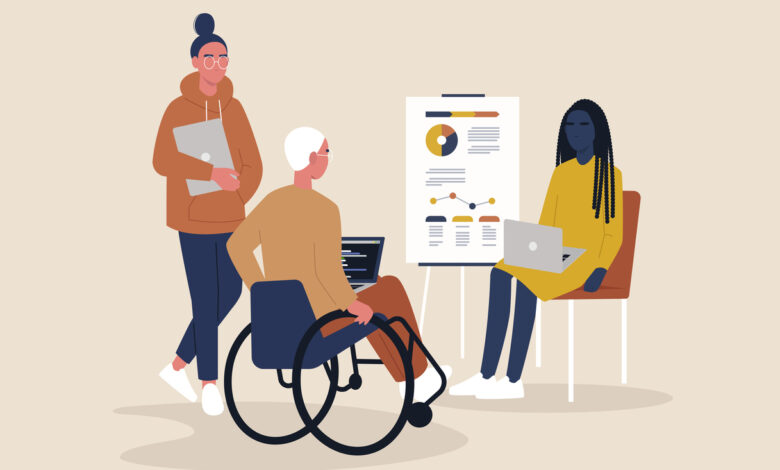(Opinion) Will bipartisanship unlock the American dream for disabled entrepreneurs?


Thomas Foley

Nikki Powis (Photo by Jason Dixson Photography)
BY THOMAS FOLEY AND NIKKI POWIS
U.S. Sens. Jeanne Shaheen and Mike Braun recently championed a significant stride toward an inclusive and economically empowered future with the introduction of the Supporting Disabled Entrepreneurs Act.
As chair of the U.S. Senate Committee on Small Business and Entrepreneurship and Ranking Member of the U.S. Senate Special Committee on Aging, respectively, Sens. Shaheen and Braun lead the bipartisan initiative to establish crucial support systems for small business owners and entrepreneurs with disabilities.
This legislation propels the Small Business Administration (SBA) forward by appointing a coordinator for disabled small business concerns. This coordinator plays a pivotal role in ensuring that individuals with disabilities gain equal access to the resources essential for starting and expanding their small businesses.
Entrepreneurs with disabilities face distinctive challenges, including limited access to resources, attitudinal barriers and outdated norms that can hinder their path to economic prosperity. The coordinated efforts outlined in this bill aim to provide tailored assistance, empowering these entrepreneurs to navigate challenges and build successful enterprises.
Entrepreneurship emerges as an alternative and empowering path for individuals with disabilities, who engage in self-employment and small business development at a rate nearly twice that of people without disabilities. In the United States, one in four people lives with a disability, facing unique obstacles to employment such as workplace accessibility challenges and social stigma; in 2022, nearly eight in 10 individuals with disabilities were outside of the labor force.
The Supporting Disabled Entrepreneurs Act not only represents a milestone in dismantling barriers for entrepreneurs with disabilities, but also serves as a key to unlocking the American dream for countless individuals and their families. More financial stability means not just personal achievement, but potentially a generational one. Increasing pathways to wealth for individuals with disabilities means that their families will benefit from increased opportunities, better access to education and improved overall wellbeing.
By fostering an inclusive environment and offering targeted support, the Supporting Disabled Entrepreneurs Act strives to level the playing field and ensure that no dream is out of reach. As we champion this bipartisan effort, let us envision a future where disabled entrepreneurs not only overcome obstacles, but also contribute significantly to the fabric of our nation, fostering a more resilient and diverse economic landscape.
We believe in a future where all people with disabilities have the same opportunities and choices as everyone else, including the ability to make meaningful decisions about where to work and live and whether to work for an employer or choose small business ownership or entrepreneurship. This means a future where people with disabilities are empowered to participate fully in the economic mainstream.
People with disabilities are eager to compete in the small business arena, demonstrating our talents, ambition and potential. By supporting disabled entrepreneurs, we not only empower individuals to fulfill their dreams, but also enrich our economy with diverse talents and perspectives.
Let us rally behind this bipartisan effort and work towards creating an environment where every American entrepreneur has the opportunity to succeed and achieve financial security.
Thomas Foley, J.D., is executive director of the National Disability Institute. Nikki Powis is director of small business programs for the institute, a Washington, D.C., based nonprofit (nationaldisabilityinstitute.org).




